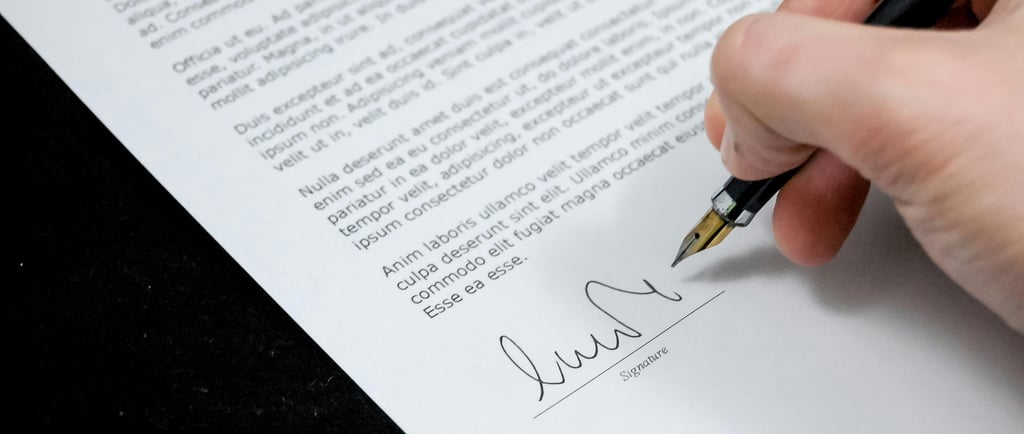Affidavit vs. Statutory Declaration: What’s the Difference?
Although they might sound similar and are often used in similar situations, there are important differences between the two.
Hanshah
4/18/20253 min read


When dealing with legal or official matters in Canada, you may come across two common types of documents: Affidavits and Statutory Declarations.
Many people are unsure which document they need, and that’s completely understandable. In this blog, we’ll break it down in simple terms to help you understand what each document is, when you need it, and how they differ.
What Is an Affidavit?
An Affidavit is a written statement of facts that you swear or affirm to be true in front of a Notary Public, Commissioner of Oaths, or a lawyer. The key thing to remember is that an affidavit involves an oath or affirmation — which means you’re promising that everything written in the document is true, and you're doing so under legal obligation.
Affidavits are often used in situations where the truth of a statement is very important. For example, they are common in court proceedings, family law cases, or even when applying for immigration and providing personal details that need to be verified.
Let’s say you're involved in a court case and need to provide your side of the story in writing. In that case, you would likely be asked to swear an affidavit.
Because affidavits are sworn under oath, lying in one can lead to serious legal consequences, including charges of perjury.
What Is a Statutory Declaration?
A Statutory Declaration, on the other hand, is also a written statement of facts, but it’s not sworn under oath. Instead, you make a formal declaration that the information is true to the best of your knowledge, without swearing on a religious text or taking an oath.
Statutory declarations are often used for administrative or government purposes rather than court cases. These can include situations such as declaring your marital status, confirming a common-law relationship, replacing a lost or stolen passport, or stating that you’ve lived at a particular address for a certain period of time.
Even though there’s no oath involved, a statutory declaration is still a legally binding document, and making a false declaration can still lead to legal trouble.
How Are They Similar?
Both affidavits and statutory declarations serve the same basic purpose: to confirm that a statement of facts is true. They are both signed in front of a qualified official — usually a Notary Public, Commissioner of Oaths, or lawyer. In both cases, the person signing the document (you) is responsible for the truthfulness of what is written.
Whether you’re swearing an affidavit or signing a statutory declaration, honesty is essential. These documents are taken seriously in legal and government processes.
What’s the Main Difference?
The main difference comes down to the use of an oath and the type of situation in which each document is used.
An affidavit involves an oath or solemn affirmation. It’s usually required in legal matters, such as court cases or legal disputes. A statutory declaration does not involve an oath, and it’s usually used for administrative or non-court-related matters, like applications, identity verifications, or lost document declarations.
Here’s a quick way to remember it:
Affidavit = Legal/court matters + sworn under oath
Statutory Declaration = Government/admin matters + no oath
Which One Do You Need?
If you're unsure which document you need, it usually depends on what the document is for. If a lawyer, court, or government office has asked you for one, they will typically specify whether it's an affidavit or a statutory declaration.
However, if you’re not sure, a Notary Public or legal professional can help clarify which one is right for your situation.
Need Help Notarizing Your Document?
At Dodo Notary, we make the process of notarizing your documents simple and hassle-free. Whether you need an affidavit for court or a statutory declaration for a lost passport or visa application, we’re here to help.
We offer both in-person and online notary services, making it easy for you to get your documents signed and ready — from the comfort of your home or at our office.
✅ Professional Service
✅ Quick Appointments
✅ Clear Guidance on What You Need
You can book an appointment online or give us a call if you have questions. We’re always happy to help!


